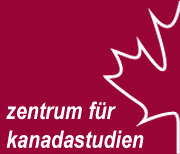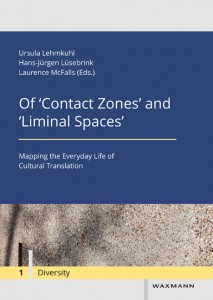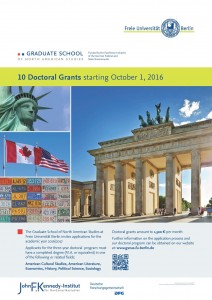

Maladies of the Soul, Emotion, Affect:
Indigenous, Canadian, and Québécois Writings in the Crossfire of a New Turn
Banff Centre, 22-25 September 2016
A Conference Organized by the Canadian Literature Centre at the University of Alberta and the Canadian Studies Centre at the University of Innsbruck
Organizing Committee: Marie Carriére (Director, Canadian Literature Center, University of Alberta), Kit Dobson (Associate Professor of English, Mount Royal University), Ursula Moser (Director, Canadian Studies Centre, University of Innsbruck)
Confirmed Keynotes
- Smaro Kamboureli, University of Toronto
- Daniel Laforest, University of Alberta
- TBA
Round-Table of Invited Authors
According to D. Bachmann-Medick, a scientific turn is not synonymous with the radical reorientation of a single discipline but basically provides a new pluri- and transdisciplinary perspective complementing and reinforcing already existing approaches. A new turn does not supplant another but becomes part of a dynamic process of competing forces, which eventually may give rise to new categories of analysis and concepts. Studying both the general implications and the positive effects and deficits of such a turn is particularly rewarding when it comes to comparing different academic traditions and – as is the case with this transatlantic and transdisciplinary conference – different literary productions written in different languages.
In the wake of the conference “Crisis and Beyond,” held at the University of Innsbruck in 2015, “Maladies of the Soul, Emotion, Affect” not only responds to recent attention to affect, or the “affective turn” dubbed by Patricia Clough, but also investigates the impact of previous forms of research both on emotions and cognition on the study of Indigenous, Canadian and Québécois writings in English and French. If empathy and agency have evolved as new guiding principles in some fields of literary analysis, their roots can be found in such classical disciplines as poetics, rhetoric, or hermeneutics (Th. Anz), and also in the focus on agency advocated by the Constance school of reception theory. While selecting contemporary Indigenous, Canadian and Québécois writings in English and French as a body of investigation, the participants are encouraged to explore the emotional and affective implications of the process of literary communication, including both conceptual and empirical research and covering the following aspects:
- the emotional and affective habitus of the producer (the “real” author), her / his intentional or non-intentional use of techniques of emotionalisation, her / his definition of a specific poetics, and their possible impact on the text
- the emotional and affective response of the “real” reader to these techniques
- the text as a vehicle of emotions or affects which names, discusses or presents them as parts of the mental habitus of the protagonists (Th. Anz); the aesthetic question of how such processes are evoked (use of metaphors, inscription of the body, syntax of the unspeakable, etc.).
The focus on contemporary literature necessarily confronts us with S. Žižek’s assessment of the 21st century as the “apocalyptic zero point” and S. Ahmed’s, L. Berlant’s and others’ warnings of the West’s “cruel” attachments to neoliberal optimism. S. Ngai identifies “ugly feelings” while M.C. Nussbaum addresses the ethics of care as an affective, and alternative, form of knowledge, agency, and democracy (J. Tronto).
- And so what are the affects and emotions that index the particularity of our literary moment or our moment of crisis?
- How does intimacy or privacy respond to publicness?
- What is today’s equivalent of Romantic ennui and melancholy?
- Do situations of exile and migration enhance the new “maladies of the soul” (J. Kristeva)?
- Do authors ask questions of liveliness and animacy (M.Y. Chen)?
- Which lives today are considered worth living and are recognized as such (J. Butler)?
- How might Indigenous literary and critical interventions undo the very categorizations and labels suggested by this call for papers and enable us to tell different stories (D.H. Justice)?
These and other lines of critical inquiry – on the basis of the above-mentioned emotional and affective implications of literary communication – are designed to allow participants to approach affect, emotion, and the new maladies of the soul of this 21st century, a task which will advance terminological, methodological, and theoretical knowledge both in the fields of affect and emotion and of text analysis.
In the treatment of this description, the organizers encourage comparative, multidisciplinary, and interdisciplinary perspectives and methodologies. They invite proposals of traditional 20-minute papers as well as other forms of presentation such as short 10-minute position papers, round-tables, or pecha kucha presentations. Complete panel proposals (of 3 or 4 papers) are also highly encouraged.
Proposals (250 words per paper), in English or in French, with a short biographical note (50 words), should be submitted to this mail address by February 1, 2016.
This second conference will take place at the Banff Centre in Canada September 22-25, 2016. Situated in Banff National Park, surrounded by the magnificent scenery of the Rockies, the Banff Centre is a unique place to promote the arts and all disciplines on a Canadian and on an international level. For further information concerning the Canadian Literature Centre at the University of Alberta, please visit www.abclc.ca.




